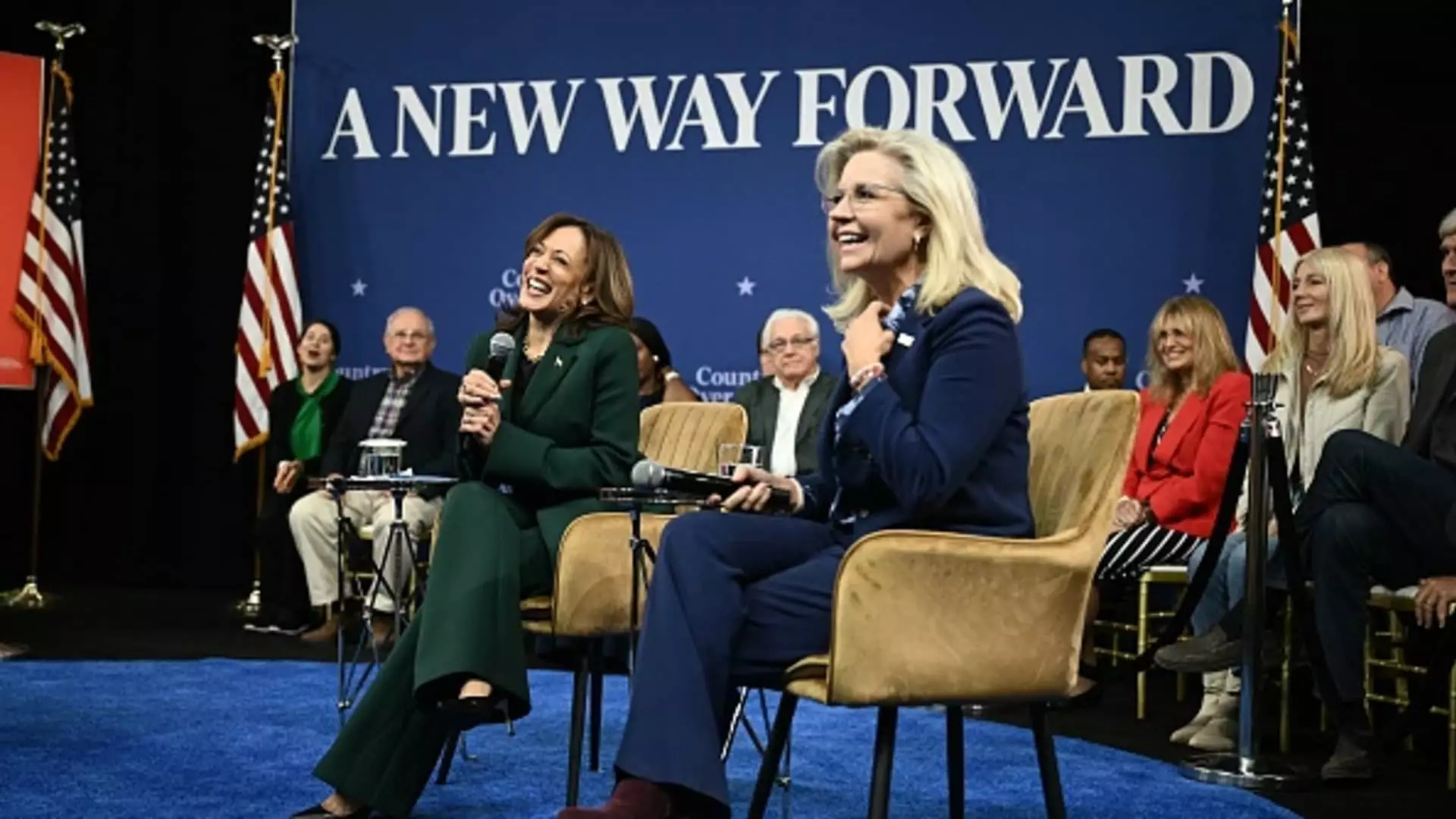In an era increasingly defined by political polarization, the recent dialogues between Vice President Kamala Harris and former Republican Representative Liz Cheney are strikingly countercultural. Their conversations, which unfolded in the battleground states of Pennsylvania, Michigan, and Wisconsin, serve as a crucial reminder that at times like these, political differences can be overshadowed by core values that transcend party lines. Cheney’s assertion that “It’s not about party, it’s about right and wrong” encapsulates this unorthodox yet necessary coalition as both women aim to redefine what bipartisan collaboration can achieve in the current political landscape.
Harris’s approach to Cheney’s endorsement demonstrates an intentional effort to draw in common-sense conservatives—those disillusioned with the current Republican leadership under Donald Trump and who seek a more traditional Republican platform. This outreach is particularly critical as the political climate becomes more hostile, with Cheney’s presence intended to reassure Republican voters that aligning with a Democratic candidate like Harris does not equate to abandoning foundational conservative principles.
Cheney encouraged citizens to “vote your conscience,” highlighting that they can support candidates whose values align with theirs without fear of backlash from their party. This sentiment is critical, especially with the growing list of restrictive reproductive laws following the Supreme Court’s decision overturning Roe v. Wade. Cheney, while identifying as “pro-life,” argued against the extreme measures taken by several states, noting that such policies are unsustainable for the well-being of the country. This nuanced position illustrates her understanding of the complexities surrounding the issue and underlines the importance of considering women’s rights within conservative discourse.
The Harris campaign’s initiative to create the “Republicans for Harris” coalition earlier this year reflects a strategic move to widen its appeal among those historically loyal to the Republican Party. This outreach is not just about the numbers; it signifies a yearning for a government that listens and adapts rather than merely adhering to ideological dogma.
Harris has made clear her interests in fostering a healthy two-party system. She stated, “We need to be able to have these good, intense debates about issues that are grounded in fact,” emphasizing the necessity of productive discourse rather than divisive rhetoric. By voicing the intention to include a Republican cabinet member should she become president, Harris signals a willingness to break conventions and pragmatic governance that benefits the country as a whole rather than segments of the political spectrum.
Cheney’s pivotal role has been viewed by political experts as a “permission structure” for conservative voters who may be hesitating to support Harris due to party allegiance. By openly aligning with a Democrat, Cheney offers validation to independents and moderate Republicans that crossing the aisle is not an act of betrayal but rather an exercise in civic duty. She belied that patriotic Americans must act in the best interest of their country, which includes reevaluating traditional partisan boundaries.
A significant component of Cheney’s criticism of Trump stems from his foreign policy tendencies, which she believes betray fundamental Republican values. In her critique, she articulated a concern that unilateralism undermines America’s alliances, potentially jeopardizing national security. Cheney linked this alarming trend to a wider conversation about how Trump has approached global partnerships, particularly NATO. Trump’s skepticism toward longstanding allies has prompted Cheney to advocate for a return to conventional foreign policies that emphasize collective security.
Moreover, Cheney’s recognition of Harris’s support for Ukraine amidst its conflict with Russia illustrates an alignment on critical issues of foreign policy strategy. Their partnership allows for a broader dialogue about international relations, especially as citizens become more concerned about global stability.
As Harris and Cheney continue their unique collaboration, the implications for the upcoming elections are significant. Their dialogues provide a refreshing contrast to the mainstream political discourse dominated by division and hostility. This alliance could serve as an essential framework for how Americans might navigate their choices as informed citizens, unbound by the traditional confines of party loyalty.
Ultimately, the approach taken by Harris and Cheney highlights the need for engagement, discourse, and compromise in a political landscape often marked by strife. Whether these efforts will catalyze substantial change among disaffected voters remains uncertain, but the act of initiating constructive conversations is undoubtedly a step in the right direction for American democracy.



Leave a Reply